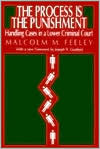Those who work with IT are accustomed to hearing about outsourcing arrangements and cloud computing. Put these concepts together and you get what has been coined the “human cloud.” The Human Cloud is a sourcing ecosystem that engages a pool of online workers, or suppliers, that can be tapped on-demand to provide a wide range of services to any interested buyer. Buyers contract suppliers or workers through one of dozens of online platforms.
2012 saw the consolidation of several platforms, a sign of a maturing industry. Lionbridge bought Virtual Solutions and Freelancer bought vWorker (parent company of RentaCoder).
Even microsoft is excited about the human cloud. See this video. Meanwhile, lionbridge has a great explanatory video.
2013 will see a shift from small business buyers to adoption by large enterprises as well as a shift from outsourcing of one-off projects to the outsourcing of processes where streams of activities in workflows are performed by “cloud” workers. Large enterprises will continue to develop internal human clouds composed of unassigned workers who may engage in modular work. As information and communication technology advances, outsourcing to the Human Cloud will eventually disrupt the multi-billion dollar business process outsourcing industry. Off-shoring becomes every-shoring, then the world is truly flat.


Recent Comments